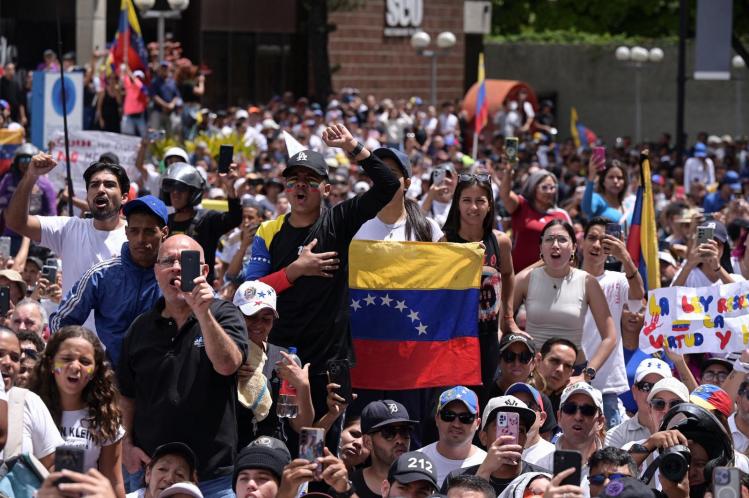
After losing the closely watched July 28 presidential election to opposition candidate Edmundo González Urrutia in a landslide, Venezuela’s autocratic president Nicolás Maduro falsely declared himself the winner. He seems to have no plans to relinquish his grip on power. Things were already bad in Venezuela before the election. Maduro’s authoritarian Chavista regime has presided over the continuing collapse of the country’s already devastated economy, in which hyperinflation, extreme poverty, hunger, and violence have led to the exodus of nearly 8 million people—one quarter of Venezuela’s population. But the situation has gotten much worse in the past month, as Maduro’s beleaguered government has responded to mass protests in Caracas and elsewhere with social media blackouts and the repressive tactics of “Operation Knock-Knock,” which has rounded up and jailed more than two thousand critics of the government. Human-rights groups report that more than two dozen people have already been killed in clashes with Venezuelan security forces and armed pro-Maduro civilian groups.
The Biden administration has recognized González as the clear winner and urged Venezuelan political parties to agree on a plan for a “respectful, peaceful transition.” It now seems that there is little more the United States can do other than hope the diplomatic efforts of the leftist governments of Mexico, Colombia, and Brazil will somehow persuade Maduro to step down. The new sanctions proposed by a bipartisan congressional group that includes senators Marco Rubio and Tim Kaine would likely be counterproductive. The Trump administration’s misguided strategy of “maximum pressure” failed to remove Maduro back in 2019, when Juan Guaidó proclaimed himself interim president. More sanctions now would further destabilize Venezuela’s economy, punishing ordinary Venezuelan citizens and encouraging Maduro to double down.
Flawed as the election was, the fact that it even took place shows that the Biden administration’s preference for carrots over sticks remains a sound and effective strategy. With the time remaining in his term, Biden should try to entice Maduro to step aside by promising him safe passage to another country as well as amnesty for the drug-trafficking charges he faces both in U.S. courts and the International Criminal Court. Providing the duplicitous, undeserving Maduro with a golden off-ramp may be politically unpalatable, but it is the right thing to do. It would clear the way for González to take office in January, deal a fatal blow to Chavismo, and reassure the approximately 3.7 million Venezuelan citizens who say they will leave the country if Maduro stays. The Wall Street Journal reports that such an effort is already underway, though State Department officials deny it.
Venezuela’s security forces remain steadfastly loyal to Maduro, and both his ministers and allies fear reprisals should González—who is really a proxy for charismatic opposition leader María Corina Machado—take power. That is why some experts, including the economist Francisco Rodríguez in the pages of the New York Times, have proposed that Venezuela adopt some kind of power-sharing arrangement, in which Maduro’s socialist party would retain control of the presidency and the military in exchange for allowing the opposition to legislate and reform the courts.
Openness to such a move might well expose Biden and the Democrats to bad-faith accusations of weakness. So be it. Even baby steps toward genuine democracy in Venezuela are preferable to the continued repression, violence, and mass migration that will almost certainly result if Maduro does not at least share power with the opposition. Throughout his presidency, Biden has shown that he is capable of making hard, unpopular decisions. The hard decision now—and also the right one—is to try to use the carrot one last time. All the sticks have failed.

